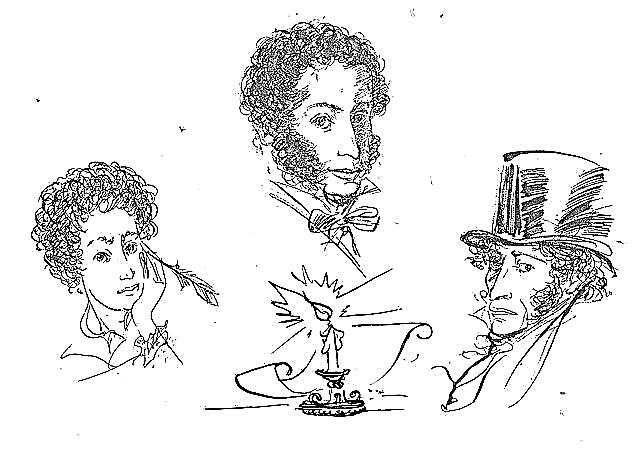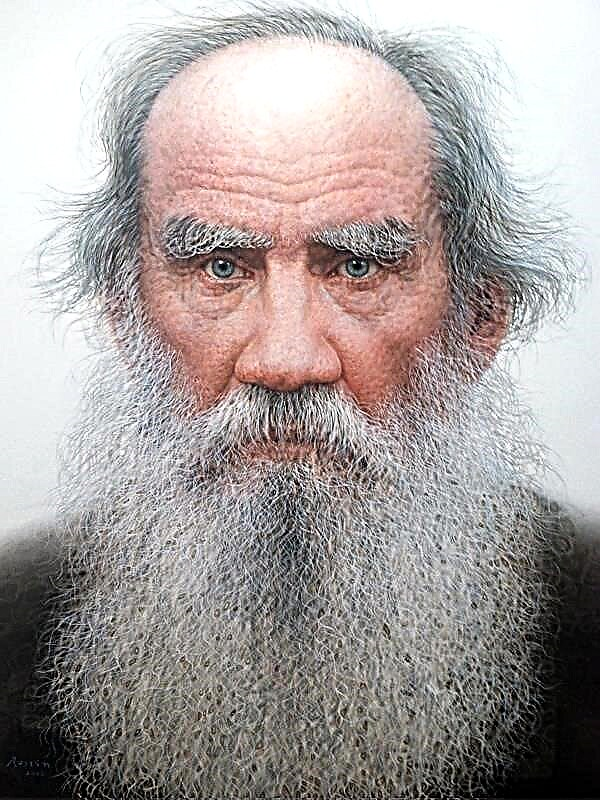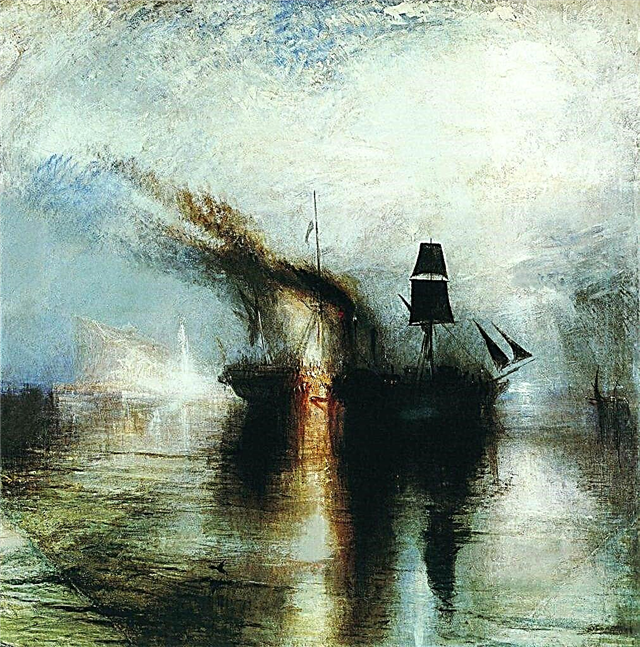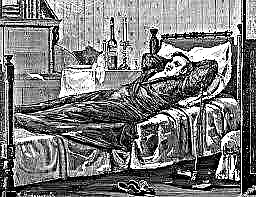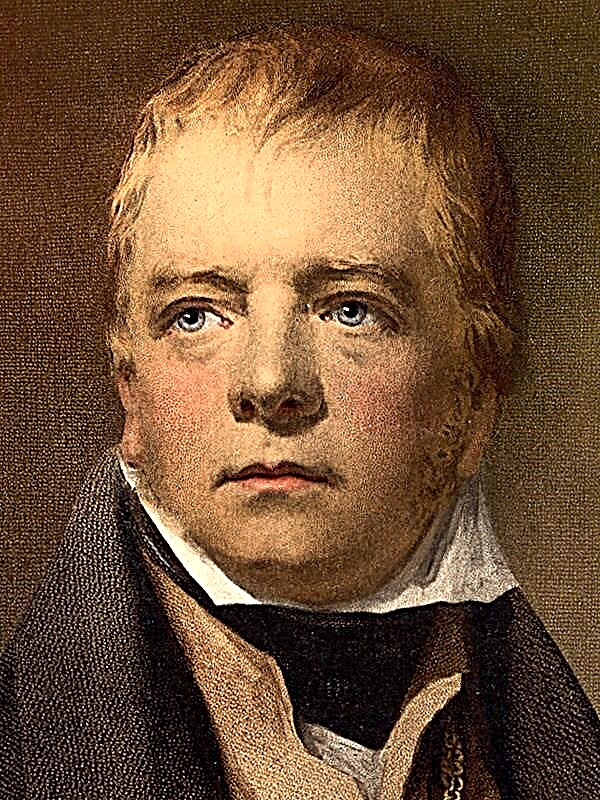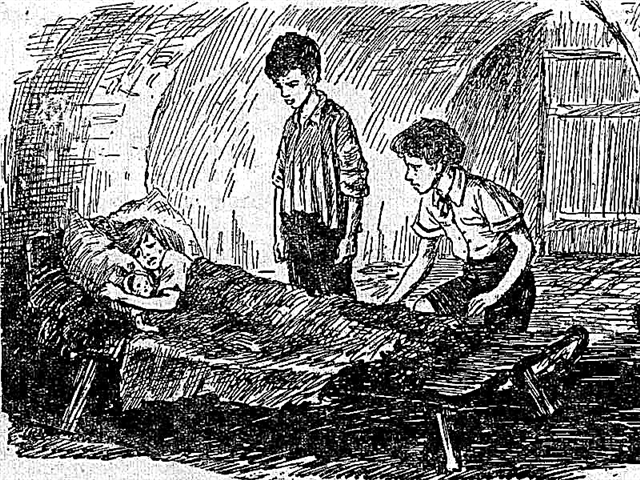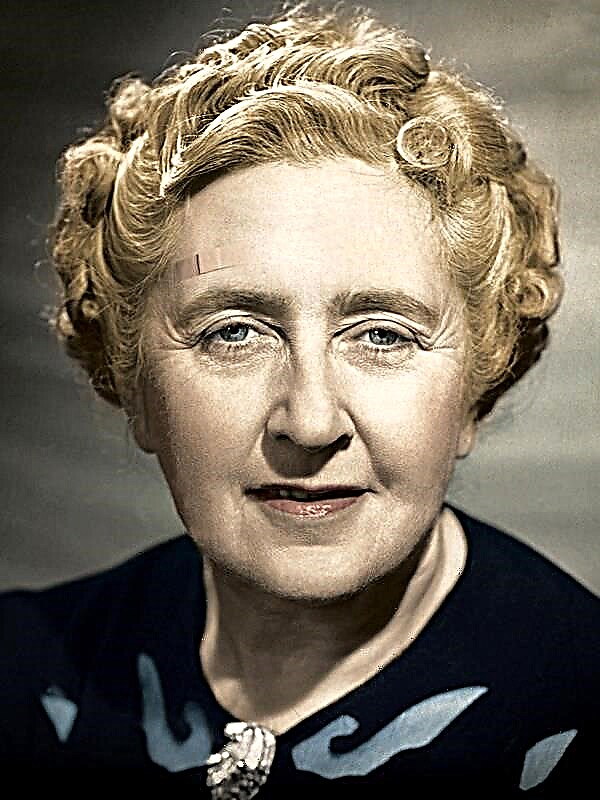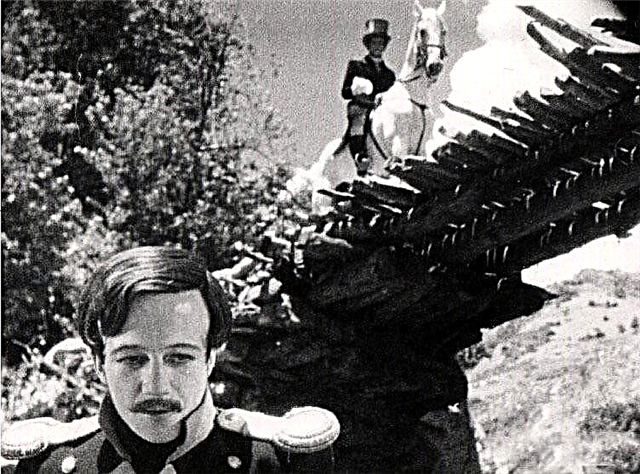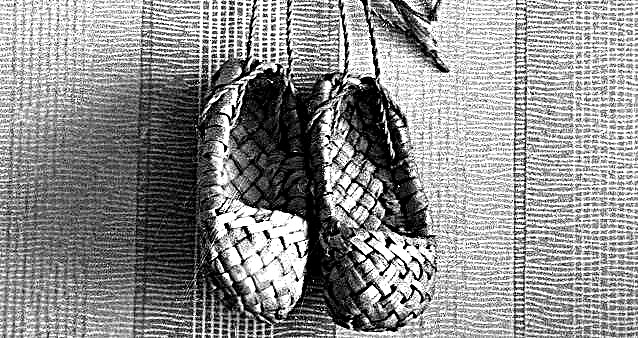The young nobleman Eugene Onegin travels from St. Petersburg to the village to his dying rich uncle, annoyed by the impending boredom. Twenty-four-year-old Eugene received a home education in childhood, he was brought up by French tutors. He spoke fluently in French, danced easily, knew a little Latin, knew how to keep silent or flash an epigram in time - this was enough for the light to react favorably to him.
Onegin leads a life full of secular fun and love affairs. Every day he receives several invitations for the evening, goes for a walk on the boulevard, then dines at the restaurateur, and from there goes to the theater. At home, Eugene spends a lot of time in front of the mirror behind the toilet. In his office there are all fashionable jewelry and appliances: perfumes, combs, nail files, scissors, brushes.
You can be a real person
And think about the beauty of nails.
Onegin is in a hurry again - now to the ball. The holiday is in full swing, music sounds, “the legs of lovely ladies fly” ...
Having returned from the ball, Eugene goes to bed early in the morning, when Petersburg is already awakening. "And tomorrow is the same as yesterday." But is Eugene happy? No, everything bored him: friends, beauties, lights, circuses. Like Byron’s Childe-Harold, he is gloomy and disappointed. Onegin, locked up at home, tries to read a lot, tries to write himself - but to no avail. The spleen again seizes him.
After the death of his father, who lived in debt and finally went bankrupt, Onegin, not wanting to engage in litigation, gives the family status to creditors. He hopes to inherit the property of his uncle. And indeed, having arrived at a relative, Eugene learns that he died, leaving his nephew with estates, factories, forests and lands.
Eugene settles in the village - life has somehow changed. At first, the new position entertains him, but soon he becomes convinced that here it is just as boring as in St. Petersburg.
Facilitating the fate of the peasants, Eugene replaced corvee dues. Due to such innovations, as well as insufficient courtesy, Onegin was known among the neighbors as the “most dangerous eccentric.”
At the same time, eighteen-year-old Vladimir Lensky, “Kant's admirer and poet,” returns to Germany from a neighboring estate. His soul is not yet corrupted by light, he believes in love, glory, the highest and mysterious purpose of life. With sweet simplicity, he sings "something and foggy distance" in exalted verses. A handsome man, a profitable groom, Lensky does not want to embarrass himself either by marriage, or even by participating in everyday conversations of neighbors.
Quite different people, Lensky and Onegin nonetheless converge and often spend time together. Eugene with a smile listens to "young delirium" Lensky. Believing that over the years, the errors themselves will disappear, Onegin is in no hurry to disappoint the poet, Lensky’s ardent feelings still inspire respect in him. Lensky tells a friend about his unusual love for Olga, which he has known since childhood and which he has long been promised to be a bride.
Her elder sister, Tatyana, does not at all look like a ruddy, blond, always cheerful Olga. Thoughtful and sad, she prefers loud games to loneliness and reading foreign novels.
Mother Tatyana and Olga was once married against her will. In the village where she was taken away, she first cried, but then got used to it, got accustomed, and began to “autocratic” manage the household and her husband. Dmitry Larin sincerely loved his wife, trusting in everything. The family revered ancient customs and rituals: pancakes were baked in the fasting season, in the Shrovetide. Their life went on so calmly until the “simple and kind gentleman” died.
Lensky visits the grave of Larin. Life goes on, some generations are replaced by others. The time will come, "... our grandchildren at a good hour / From the world they will force us out too!"
One evening, Lensky is going to visit the Larins.Onegin, such a pastime seems boring, but then he decides to join a friend to look at the subject of his love. On the way back, Eugene openly shares his impressions: Olga, in his opinion, is mediocre, in the place of a young poet, he would rather have chosen an older sister.
Meanwhile, the unexpected visit of friends gave rise to gossip about the future wedding of Eugene and Tatiana. Tatyana herself secretly thinks about Onegin: "It's time to come, she fell in love." Immersed in reading novels, Tatyana imagines herself to be their heroine, and Onegin - a hero. At night she cannot fall asleep and starts a conversation about love with the nanny. She tells how she was married at thirteen, and she cannot understand the young lady. Suddenly Tatyana asks for a pen, paper and takes up a letter to Onegin. In him, trusting, obedient to the attraction of feelings, Tatyana is frank. She in her sweet simplicity does not know about the danger, does not observe the caution inherent in the "inaccessible" cold Petersburg beauties and cunning coquettes, which lure fans to their networks. The letter was written in French, because it was much more common for ladies at that time to express themselves in that language. Tatyana believes that Eugene is “sent by God” to her, that she cannot entrust her fate to anyone else. She is waiting for Onegin to make a decision and answer.
In the morning, Tatiana excitedly asks the nanny Filipyevna to send a letter to her neighbor. There is a languid expectation. Lensky arrives, finally, after him - Onegin. Tatyana quickly runs away to the garden, where the maid girls sing, picking berries. Tatiana can not calm down, and suddenly - Eugene appears in front of her ...
The sincerity and simplicity of Tatyana’s letter touched Onegin. Not wanting to deceive the gullible Tanya, Eugene turns to her with a "confession": if he were looking for a quiet family life, he would choose Tatyana as his friend, but he was not created for bliss. Gradually, “confession” becomes “preaching”: Onegin advises Tatiana to restrain her feelings, otherwise inexperience will bring her to trouble. The girl in tears listens to him.
We have to admit that Onegin did rather nobly with Tanya, no matter how much his enemies and friends honor him. In our life, we cannot rely on friends, relatives or loved ones. What remains? "Love yourself ..."
After an explanation with Onegin, Tatyana “withers, turns pale, goes out and is silent.” Lensky and Olga, by contrast, are cheerful. They are together all the time. Lensky is decorated with drawings and elegies Holguin album.
And Onegin, meanwhile, indulges in a calm village life: "walks, reading, deep sleep." Northern summer quickly passes, a boring autumn season comes, and after it - frosts. Onegin sits at home on winter days, Lensky calls in to visit him. Friends drink wine, talk by the fireplace, and remember their neighbors. Lensky sends Eugene an invitation in the name of Tatyana, enthusiastically talking about Olga. A wedding has already been scheduled, Lensky has no doubt that he is loved, so he is happy. His faith is naive, but is it better for someone in whom “the heart has cooled the experience”?
Tatyana loves the Russian winter: sleigh rides, sunny frosty days and dark evenings. Christmas time is coming. Fortune telling, ancient legends, dreams and signs - Tatyana believes in all this. At night, she is going to bewitch, but she becomes scared. Tatyana goes to bed, removing her silk belt. She has a strange dream.
She walks alone in the snow, a stream rises in front, a thin bridge over it. Suddenly, a huge bear appears, which helps Tatiana to cross to the other side, and then pursues her. Tatiana tries to escape, but falls exhausted. The bear brings her to some hut and disappears. Recollecting himself, Tatyana hears screams and noise, and through a crack in the door she sees incredible monsters, among them Onegin as the owner! Suddenly, from a gust of wind, the door opens, and the whole gang of infernal ghosts, laughing wildly, approaches her. Hearing the terrible word of Onegin, everyone disappears. Eugene attracts Tatyana to her, but here Olga and Lensky appear. The dispute flares up.Onegin, unhappy with the intruders, grabs a knife and kills Lensky. Darkness, scream ... Tatyana wakes up and immediately tries to solve a dream, leafing through Martyn Zadeka's dream book.
The day comes name day. Guests come together: Pustyakov, Skotinin, Buyanov, Monsieur Triquet and other funny figures. The arrival of Onegin leads Tanya to excitement, and Eugene is annoying. He is indignant at Lensky, who called him here. After lunch, the ball begins. Onegin finds an excuse to take revenge on Lensky: he is gracious with Olga, constantly dancing with her. Lensky is amazed. He wants to invite Olga to the next dance, but his bride has already given the floor to Onegin. The offended Lensky retires: only a duel can now decide his fate.
The next morning, Onegin receives a note from Lensky challenging him to a duel. The letter is brought by a second Zaretsky, a cynical, but not stupid person, a former buoy, a cart thief, an avid duelist who knew how to quarrel and reconcile friends. Now he is a peaceful landowner. Onegin accepts the challenge calmly, but in his heart remains dissatisfied with himself: there was no need to joke so evil over the friend’s love.
Lensky is eagerly awaiting an answer; he is glad that Onegin did not avoid the fight. After some hesitation, Vladimir nevertheless goes to the Larin. It was as if nothing had happened fun meets Olga. Embarrassed, touched, happy Lensky is no longer jealous, but he is nevertheless obliged to save his beloved from the "lecher". If Tatyana knew about everything, perhaps she would have prevented the upcoming fight. But both Onegin and Lensky are silent.
In the evening, the young poet composes farewell verses in lyrical heat. A little dozing Lensky wakes up a neighbor. Eugene, having overslept, is late for the meeting. He has long been waiting at the mill. Onegin presents his servant Guillot as a second, which causes Zaretsky's displeasure.
As if in a nightmare, the “enemies” calmly prepare each other for death. They could make up, but you have to pay tribute to secular customs: a sincere impulse would be mistaken for cowardice. Finished cooking. Opponents on command converge, aim - Eugene manages to shoot first. Lensky is killed. Onegin runs up, calls him - all in vain.
Perhaps the eternal glory awaited the young poet, or perhaps an ordinary boring life. But be that as it may, the young dreamer is dead. Zaretsky takes the icy corpse home.
Spring came. At the stream, in the shadow of two pines, there is a simple monument: here lies the poet Vladimir Lensky. Once upon a time here sisters Larina often came to sad, now this place is forgotten by people.
Olga after the death of Lensky did not cry for long - after falling in love with the lancer, she got married, and soon left with him. Tatyana was left alone. She still thinks of Onegin, although she should have hated him for killing Lensky. Walking one evening, Tatyana comes to the deserted estate of Onegin. The housekeeper takes her to the house. Tatiana with emotion looks at the "fashion cell". Since then, she often comes here to read books from the library of Eugene. Tatyana carefully examines the margin marks, with their help she begins to more clearly understand the one whom she adored. Who is he: an angel or a demon, "is he not a parody?"
Tatyana's mother is worried: her daughter refuses all the suitors. Following the advice of her neighbors, she decides to go to Moscow, "to the brides' fair." Tatyana says goodbye to her beloved forests, meadows, and freedom, which she will have to exchange for the bustle of light.
In winter, Larins finally finish the noisy gatherings, say goodbye to the servants, sit down in a cart and go on a long journey. In Moscow, they stop at Alina’s aged cousin. All days are busy with visits to numerous relatives. The girls surround Tanya, trust her with their heart secrets, but she does not tell them anything about her love. Vulgar nonsense, indifferent speeches, gossip hears Tatyana in secular living rooms. In a meeting amid the noise, the rumble of music, Tatyana is carried away by a dream to her village, to flowers and alleys, to her memories.She does not see anyone around, but some important general does not take her eyes off herself ...
After more than two years, a lonely and silent Onegin appears at a social event in St. Petersburg. Once again, he remains a stranger to society. People are ready to condemn everything strange and unusual, only mediocrity is up to them. And everyone who, having got rid of unnecessary dreams, achieves fame, money and ranks in time, everyone recognizes as a “wonderful person”. But it’s sad to look at life as a ritual and obediently follow everyone. Onegin, having lived “without service, without wife, without work” to twenty-six years, does not know what to do. He left the village, but he was tired of traveling too. And then, having returned, he gets "from the ship to the ball."
The general attention is attracted by the lady who appeared accompanied by an important general. Although it can not be called beautiful, everything in it is cute and simple, without the slightest share of vulgarity. Evgeny's vague guesses are confirmed: this is Tatyana, now a princess. The prince represents the wife of his friend Onegin. Eugene is embarrassed, Tatyana is absolutely calm.
The next day, having received an invitation from the prince, Onegin is looking forward to the evening to see Tatyana as soon as possible. But alone with her, he again feels awkward. Guests appear. Onegin is busy only with Tatyana. Such are all people: they are attracted only by the forbidden fruit. Having not appreciated the charm of the “tender girl” at one time, Eugene falls in love with the impregnable and majestic “legislator” of the upper world. He relentlessly follows the princess, but cannot get attention from her. In desperation, he writes a passionate message to Tatyana, where he justifies himself for his former coldness and begs for reciprocity. But Onegin does not receive an answer either to this or to other letters. At meetings, Tatyana is cold and does not notice him. Onegin locks himself in his office and starts reading, but his thoughts constantly take him back.
One spring morning Onegin leaves his confinement and leaves for Tatyana. The princess alone reads a letter and cries quietly. Now in it you can recognize the former poor Tanya. Onegin falls at her feet. Tatyana, after a long silence, turns to Eugene: it is his turn to listen. He once rejected the love of a humble girl. Why pursue her now? Is it because she is rich and notable that her shame would bring Onegin “seductive honor”? Tatyana is alien to the splendor and brilliance of social life. She would be glad to give all this for a poor home, for the garden where she first met Onegin. But her fate is decided. She had to yield to her mother's pleas to get married. Tatyana admits that she loves Onegin. And yet he must leave her. “But I am given to another; I will be faithful to him for a century ”- with these words she leaves. Eugene is amazed. Suddenly, Tatyana’s husband appears ...
And here is my hero
In a moment of evil for him
Reader, we will now leave
For a long time ... forever.

